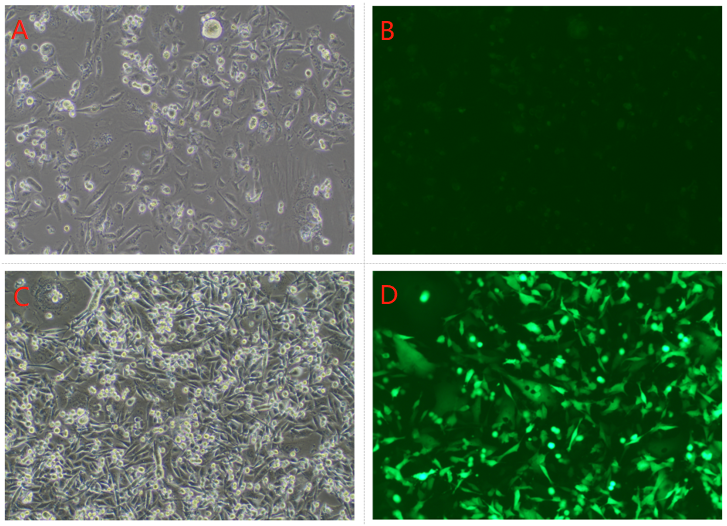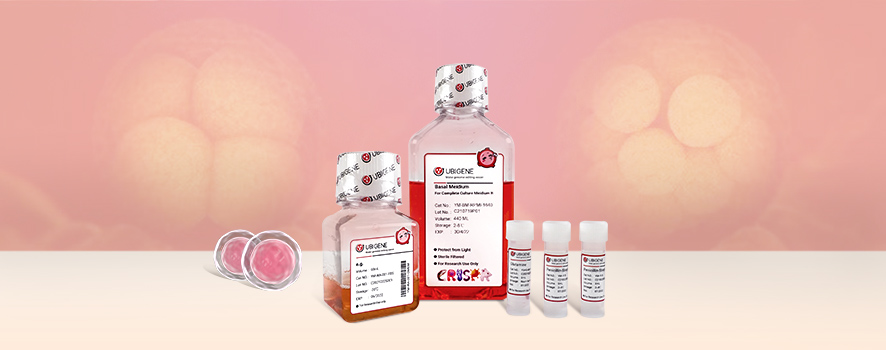Optimized culture medium,boost single-cell clone formation!
What's the difficulty of cell culturing
Cell culturing plays an important role in gene-editing experiment. By simulating the internal environment (asepsis, suitable temperature, pH and certain nutrition, etc.) in vitro, cells can survive, grow, proliferate and keep their main structure and function. It seems simple, but this process is a real headache for many researchers. For example, adherent cells do not adhere, suspended cells become clustered, even inadvertently, cells may die...
Some experiments have higher requirements on the cells condition, such as gene-editing experiments. In the process of electrotransfection, Lentivirus infection and antibiotic screening, the cells will suffer additional damage, which is easy to lead to cell death. So it will reduce the efficiency of gene-editing. Especially in single-cell clone culture, the low single-cell clone formation rate and longer growth time increase the difficulty of cell culture. Therefore, improving a culture system that can quickly restore and optimize the cell condition is very important for the success of gene-editing experiments.
What culture system is suitable for gene-editing?
How to develop a culture system that suitable for all kinds of gene-editing experiments? Ubigene’s technical team chose to start with the cell transfection , because transfection is a common step of most gene-editing experiments and the most demanding step for the cell condition. The proportion of each component in the basic culture medium need to be considered. Serum selection, including different blood collecting time, grades, sources, treatments and batches; Some cells also need to add supplements. So far Ubigene’s expert team has innovated and developed two culture media according to the high cell requirements for experiments: Transfection Culture Medium and Cell Monoclonal Culture Medium. And now Ubigene are offering a time-limited promotion for these two culture media, 15% off. Click for more promotions>.
Ubigene’s Transfection Culture Medium can be divided into three types: Culture medium A, Culture medium B, and Cell specific culture medium, which cover more than 70 common cell lines. Ubigene’s Transfection Culture Medium optimizes the composition of culture medium through the 12-year gene-editing experience, provides sufficient nutrition and stable pH of cells, and can accelerate the speed of cell recover after cells are damaged during transfection and antibiotic screening. Additionally, if the Transfection Culture Medium is used to adjust the cell condition before cell transfection, the transfection efficiency can be significantly improved (Fig.1).

Figure 1
Note : A and B are the cell condition and infection rate of MDA-MB-231 cell line after infection with lentivirus in common culture medium, C and D are the cell condition and infection rate of MDA-MB-231 cell line after infection with Lentivirus in Ubigene’s EZ-editor Transfection Culture Medium.
Cell Monoclonal Culture Medium is suitable for single-cell clones growing in gene-editing experiment. For common cell lines that are able to form single-cell clones, this medium can significantly improve the single-cell clone formation rate. Even for cell lines that are difficult or unable to form single-cell clones, we can get sufficient cell clones by using our Cell Monoclonal Culture Medium, and it can greatly improve the efficiency of gene-editing (Table 1).
Table 1 Single-cell clone formation rate of various cell lines in different culture media
|
Cell line
|
Morphology
|
Single-cell
clone
fomation rate
|
Common
culture
medium
|
EZ-editor™ Cell
Monoclonal Culture
Medium
|
|
SK-N-SH
|
Epithelial-like, adherent
|
Hard
|
<1%
|
20-30%
|
|
Huh-7
|
Epithelial-like, adherent
|
Hard
|
1-5%
|
15-25%
|
|
Hep G2
|
Epithelial-like, adherent
|
Hard
|
4-8%
|
20-30%
|
|
22RV1
|
Epithelial-like, adherent
|
Hard
|
8-12%
|
20-30%
|
|
MDA-MB-231
|
Epithelial-like, adherent
|
Medium
|
8-12%
|
25-35%
|
|
THP-1
|
Monocyte, suspension
|
Medium
|
15-19%
|
25-35%
|
|
HEK293
|
Epithelial-like, adherent
|
Easy
|
16-20%
|
32-38%
|
Ubigene has released a series of EZ-editor™ Gene-editing Products, including Transfection Culture Medium and Cell Monoclonal Culture Medium. Based on our original intention" make genome editing easier!", Ubigene’s EZ-editor™ gene-editing series products fully cover the whole gene-editing experiment process and can effectively solve the experimental difficulties. Each EZ-editor™ gene-editing product is developed to improve the efficiency of gene-editing. Click here to get more information of EZ-editor™ Gene-editing Products>
 Subscribe Us
Subscribe Us Gene Editing Services
Gene Editing Services
 EZ-editor™
EZ-editor™ Red Cotton Gene knockout Project
Red Cotton Gene knockout Project









